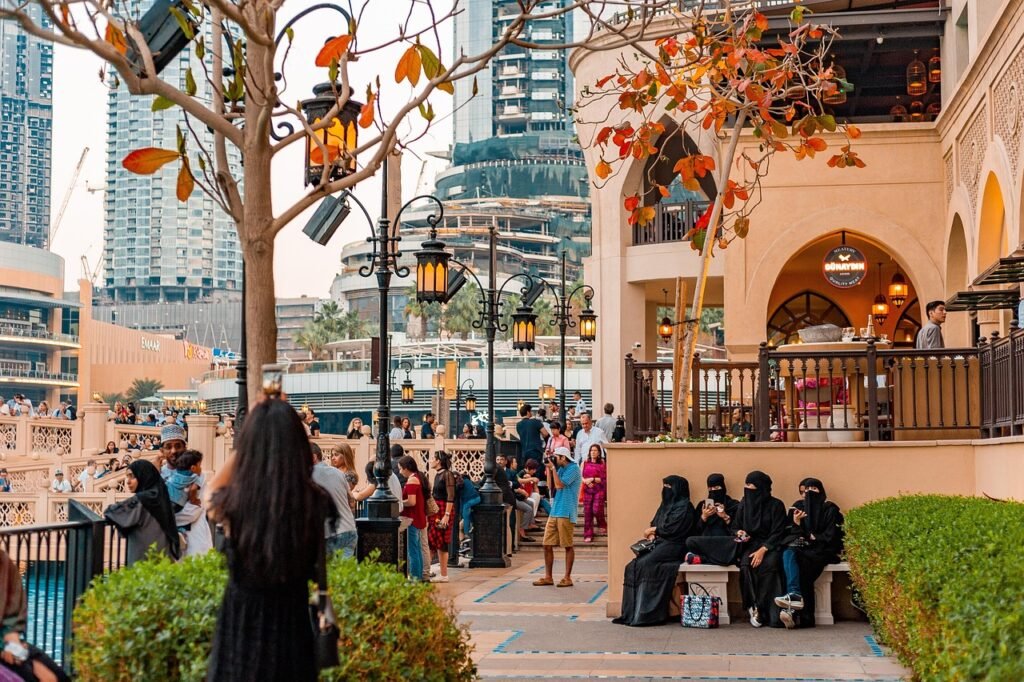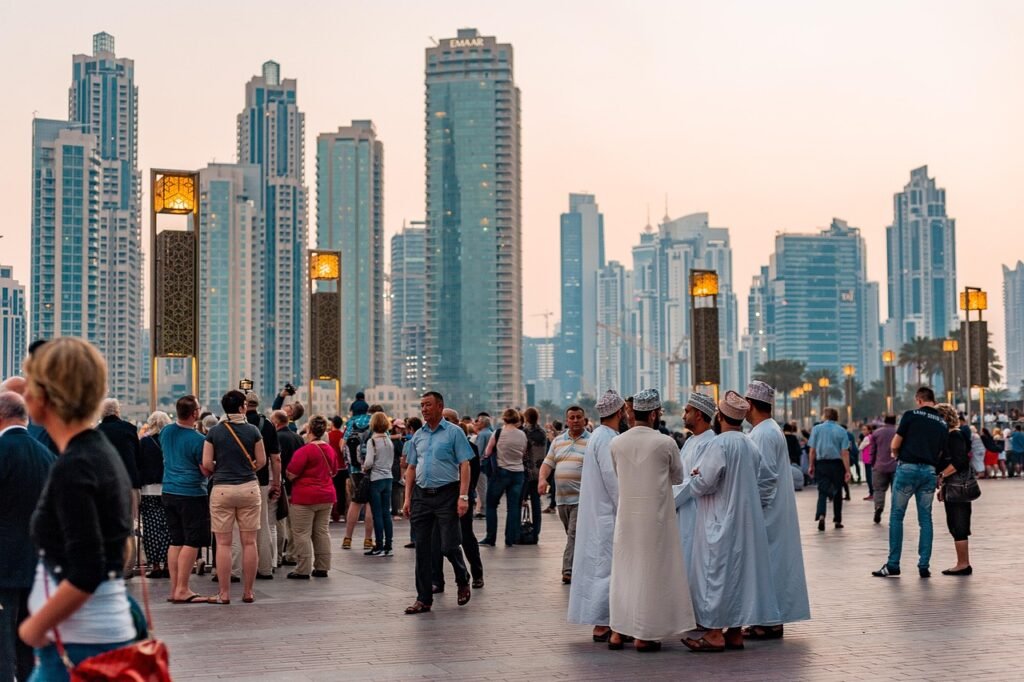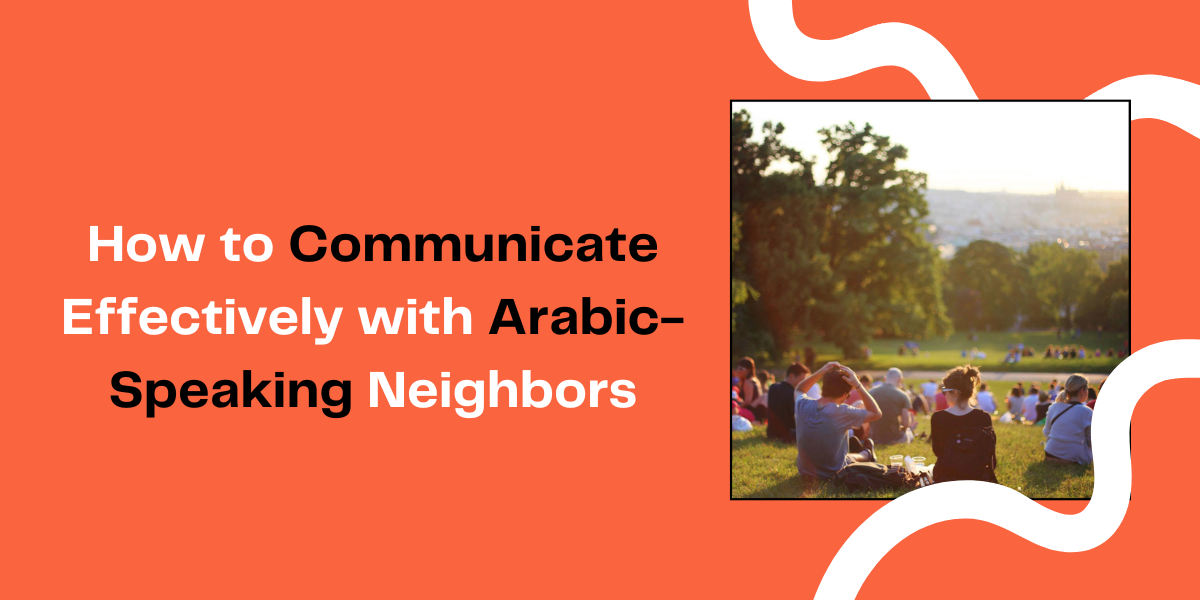How to Communicate Effectively with Arabic-Speaking Neighbors 2026
Living next to Arabic-speaking neighbors can be a rewarding experience. You get to meet people with a different culture, language, and way of seeing the world. But communication can feel hard when you don’t share the same language. Misunderstandings can happen. You might avoid talking because you worry about saying something wrong.
Learning to communicate well with your neighbors can change everything. It can turn a polite wave into real friendship. It can make your street feel like a community. When you understand each other, you feel safer, more welcome, and more connected to where you live.
Arabic is one of the most spoken languages in the world. More than 300 million people speak it as their first language, and millions more use it as a second language. Your neighbors might come from countries as different as Morocco, Egypt, Lebanon, or Saudi Arabia. They might follow different traditions, but the Arabic language is something they share. Knowing even a little Arabic can help you connect.
Good communication is not only about language. It’s about respect, listening, and patience. You don’t need to be fluent to build trust. A smile, a greeting, or a small gesture can mean a lot. But when you learn a few Arabic words, you show effort. Your neighbors will notice. They will feel respected and more open to talk.
When you start interacting more, you will see new opportunities. You might learn about Arabic food, music, and celebrations. You might share your own culture in return. This exchange can make both sides feel proud and curious. Your children can grow up seeing friendship between families from different backgrounds, which is a strong lesson for the future.
This article will guide you step by step. You will learn how to greet in Arabic, how to ask simple questions, and how to handle common situations. We will also talk about cultural habits, what to avoid saying, and how to be a good listener. These tips will help you feel more confident when you knock on your neighbor’s door or meet them in the hallway.
Communication is a skill. The more you practice, the better you get. At first, you might feel shy, but every word you say will make you more comfortable. Even mistakes are a good thing, because they help you learn. Your neighbors will often appreciate your effort and even help you improve.
By the end of this series, you will have the tools to build real relationships with Arabic-speaking neighbors. Whether you just moved to a new area or you have been living next to Arabic speakers for years, you will find something useful here. Let’s begin by understanding the language and culture, so you can make the first step toward better communication.

Part 1: Understanding Arabic Language Basics
If you want to communicate with your Arabic-speaking neighbors, start with the basics. Learning a few words and phrases will help you feel confident and break the ice. You don’t need to master grammar or write full sentences. Focus on what you can use in everyday life.
Arabic is not one language
Arabic has many varieties. The formal version is called Modern Standard Arabic (MSA). It’s used in news, books, and formal writing. But most people speak a local dialect at home. For example, Moroccan Arabic sounds different from Egyptian Arabic. This can feel confusing at first.
Don’t let this stop you. The good news is that some words are shared across most dialects. Simple greetings and polite phrases are understood almost everywhere. If you learn those first, you can connect with neighbors from many countries.
Greetings you can use
Greetings are very important in Arabic culture. People often greet each other even if they are strangers. A simple hello can open the door to a longer conversation. Here are some easy ones to try:
- As-salamu alaykum – “Peace be upon you.” This is the most common greeting.
- Wa alaykum as-salam – “And peace be upon you too.” This is the reply.
- Marhaban – “Hello.”
- Sabah al-khayr – “Good morning.”
- Masa’ al-khayr – “Good evening.”
Try saying these when you meet your neighbors in the hallway or outside. You will notice a positive reaction right away.
Useful polite phrases
Politeness matters a lot. People appreciate when you show respect. Learn these phrases to make conversations smoother:
- Shukran – “Thank you.”
- Afwan – “You’re welcome.”
- Min fadlik – “Please.”
- Naam – “Yes.”
- La – “No.”
These words are short and easy to pronounce. Use them often. They show that you are making an effort.
Asking simple questions
Once you feel comfortable with greetings, move to simple questions. You can use them to start small talk:
- Kayfa haluk? – “How are you?” (to a man)
- Kayfa haluki? – “How are you?” (to a woman)
- Ma ismuk? – “What is your name?” (to a man)
- Ma ismuki? – “What is your name?” (to a woman)
Even if you struggle with pronunciation, most people will understand what you mean.
Body language and tone
Arabic communication is not just about words. Body language plays a big role. People often smile and make eye contact during greetings. A warm tone shows respect.
If your neighbors are from a conservative background, avoid physical contact unless they offer it first. A handshake is common, but some people prefer not to shake hands with the opposite gender. Wait and see how they greet you, then follow their lead.
Listening carefully
Communication is two-way. Listen to your neighbors when they speak, even if you understand only a little. You can pick up words over time. This shows respect and makes people more willing to speak with you again.
Practice daily
The fastest way to learn is to practice every day. Use the greetings whenever you see your neighbors. Repeat them until they feel natural. Over time, add more phrases. You can also watch short videos online to hear how native speakers say the words.
Be patient with yourself
You will make mistakes, and that is normal. Don’t feel embarrassed. Most Arabic speakers are happy to see someone learning their language. They might correct you gently or teach you new words. Take this as a gift, not criticism.
Why this matters
When you use even a few Arabic words, you show respect for your neighbors’ culture. You make it easier for them to approach you. You might notice them smiling more or starting conversations with you. This small step can turn into deeper friendships and stronger community ties.

Part 2: Understanding Arabic Culture and Social Norms
Learning words is helpful, but language alone is not enough. Culture shapes how people speak, act, and react. If you want to connect with Arabic-speaking neighbors, you need to understand some of their customs. This will help you avoid mistakes and show that you respect their way of life.
Respect is central
Respect is the heart of Arabic culture. People greet each other politely, often asking about family and health before getting to the main topic. Rushing straight into business can feel cold or rude. Take a moment to greet and exchange a few words before asking questions or making requests.
For example, instead of just saying “Hi,” try:
- “As-salamu alaykum. Kayfa haluk?” (“Peace be upon you. How are you?”)
This shows warmth and interest.
Hospitality is important
Hospitality is a major value. If your neighbors invite you for tea or coffee, this is a sign of friendship. Accepting the invitation, even for a short visit, shows respect. You don’t have to stay long or eat a lot, but being present matters.
If you visit, take off your shoes if they do. This is common in many homes. A small gift like fruit or sweets is appreciated but not required.
Family matters
Family is very important in Arabic culture. You might see several generations living together in one home. You might hear children playing late into the evening or grandparents visiting often.
When you greet someone, asking about their family is polite. For example:
- “Kayfa ahluk?” (“How is your family?”)
This shows you care.
Gender interactions
Gender roles can be different depending on the country and how religious your neighbors are. Some families are very open, while others are more traditional.
Be respectful when interacting with members of the opposite gender. If you are not sure whether to shake hands, wait for them to offer first. If they do not, simply nod or say a verbal greeting.
Religious practices
Many Arabic speakers are Muslim, though not all. If they are, you might notice certain habits:
- They may pray five times a day.
- They may fast during Ramadan, which means no food or drink from sunrise to sunset.
- They may not drink alcohol or eat pork.
Being aware of these practices can help you avoid awkward moments. For example, if you want to offer food during Ramadan, do it after sunset.
Time and conversation style
In some Arabic cultures, time feels more flexible. People may arrive later than the exact hour for a visit. This is not meant as disrespect but as a different rhythm of life.
Conversations can feel warmer and more expressive. People may speak with their hands or stand closer when talking. This is normal and shows interest, not aggression.
What to avoid
- Don’t make jokes about religion or politics.
- Don’t assume all Arabs think or live the same way.
- Don’t rush conversations or cut people off.
Building trust
Consistency matters. Say hello every time you see your neighbors. Show small acts of kindness like helping carry bags or shoveling snow. These gestures are remembered.
Trust takes time, but once it is built, relationships can become very strong. You may find yourself invited to celebrations like Eid, weddings, or family meals.
Learn by observing
The best way to understand culture is to watch carefully. Notice how your neighbors greet each other, how they host guests, and how they interact in public. Follow their example when appropriate.

Part 3: Practical Communication Strategies
You know some Arabic phrases and understand the culture. The next step is using this knowledge in real situations. Communication gets easier when you prepare for common scenarios. These strategies will help you feel ready and avoid awkward moments.
Start with small talk
Small talk is an easy way to build comfort. Use greetings first, then ask simple questions. Examples:
- “Kayfa haluk?” – “How are you?”
- “Kayfa al-jo?” – “How is the weather?”
- “Kayfa kan yawmuk?” – “How was your day?”
Keep it short at first. Over time, you will notice which topics your neighbors like to discuss.
Use names often
People like hearing their name. When you learn your neighbor’s name, use it in conversation. It makes the exchange feel warmer and personal.
For example:
- “Sabah al-khayr, Ahmed.” – “Good morning, Ahmed.”
Non-verbal communication
If you forget a word, use gestures. Pointing, nodding, or smiling helps fill the gap. Many Arabic speakers are used to working with people who don’t know their language. They will often guess what you mean.
Inviting neighbors
If you want to invite neighbors over, keep it simple. Say:
- “Tafaddal.” – “Please come.”
- “Ahlan wa sahlan.” – “Welcome.”
Offer something small like tea, coffee, or biscuits. Hospitality does not have to be fancy. The invitation itself builds the relationship.
Asking for help
Sometimes you may need help, like borrowing a tool or getting local advice. Use polite words:
- “Min fadlik, mumkin musa’ada?” – “Please, can you help?”
Say thank you after. If they help you, look for a chance to return the favor. This creates balance and mutual respect.
Dealing with misunderstandings
Misunderstandings will happen. Stay calm and patient. If your neighbor looks confused, repeat slowly or use another word. If you feel you said something wrong, smile and say:
- “Afwan.” – “Sorry.”
A friendly tone can fix most small mistakes.
Sharing culture
Show interest in their traditions. Ask about holidays or food:
- “Mata Eid?” – “When is Eid?”
- “Ma aklak al-mufaddal?” – “What is your favorite food?”
You can also share your own culture. Invite them to try your favorite dish or explain your celebrations. This exchange builds respect on both sides.
Handling noise or issues
If there is a problem, like loud music or parking issues, approach it politely. Start with a greeting, then explain clearly and respectfully. Avoid blaming language. Example:
- “As-salamu alaykum. Andi mushkila saghira.” – “Peace be upon you. I have a small problem.”
This keeps the conversation friendly and solution-focused.
Practice listening
When your neighbors speak, listen carefully. Even if you don’t understand everything, nod and show interest. This encourages them to speak more slowly or explain.
Use technology
If you get stuck, use a translation app. Show the Arabic text on your phone. Many neighbors will appreciate your effort.
Keep learning
Learn one new word or phrase each week. Write it down and use it with your neighbors. The more words you know, the easier it becomes to speak naturally.
Be consistent
Consistency is key. Greet your neighbors every time you see them. Over time, this builds trust. Your neighbors will start greeting you first.
Part 4: Building Long-Term Relationships and Community Bonds
Good communication is the first step. The next step is building trust and turning friendly exchanges into lasting relationships. When you invest in these connections, your neighborhood becomes a place where everyone feels safe and welcome.
Be consistent over time
Consistency shows sincerity. Greet your neighbors every time you see them, not just once in a while. Over months, this builds a pattern of trust. People open up when they see you care enough to keep trying.
Share food
Food is one of the easiest ways to connect. If you cook something special, offer a small plate to your neighbors. During holidays, you can exchange traditional foods. Many Arabic-speaking families will share dishes like dates, sweets, or rice dishes during celebrations. Accepting these gestures and giving something in return deepens the relationship.
Celebrate milestones together
If your neighbor has a baby, a wedding, or a big achievement, congratulate them. If you have news to share, tell them too. Celebrating together makes you part of each other’s lives.
Show respect for traditions
If your neighbors are Muslim, learn when Ramadan starts. You can say:
- “Ramadan Kareem” – a common greeting meaning “Have a blessed Ramadan.”
At the end of Ramadan, wish them “Eid Mubarak” – “Blessed Eid.” Small gestures like these mean a lot.
Offer help when needed
If you see your neighbor struggling with groceries, offer to carry a bag. If it snows, clear the path in front of both your homes. These small actions build goodwill and make your relationship stronger.
Create shared experiences
Suggest activities that include both families. Examples:
- A tea or coffee gathering.
- A weekend barbecue.
- Taking kids to the park together.
Shared experiences create memories and turn neighbors into friends.
Respect privacy
While building connection is important, respect boundaries too. Some families prefer quiet and private lives. Look for signs of interest before visiting often or asking many personal questions.
Solve problems gently
If conflict comes up, handle it calmly. Speak in person rather than leaving notes or sending messages. Start with a greeting, explain the issue politely, and suggest a solution. This shows maturity and keeps the relationship positive.
Learn more about the language
Keep improving your Arabic. Over time, you can learn how to make longer sentences and talk about more topics. Your neighbors will notice your progress and feel even more connected to you.
Get involved in the community
Join local events where Arabic-speaking families are present. This could be cultural festivals, charity events, or school activities. Seeing each other in different settings strengthens trust.
Teach your children
If you have children, encourage them to greet and play with your neighbors’ children. Kids are quick learners and often form friendships faster than adults. This connection can make both families closer.
Be patient
Strong relationships take time. Don’t expect immediate closeness. Keep showing respect, greeting, and sharing. With time, the friendship will grow naturally.

Final Advice
Communicating with Arabic-speaking neighbors is more than learning a few words. It’s about building respect, trust, and friendship over time. Small steps lead to big results. A smile, a greeting, or a short conversation can turn strangers into friends and neighbors into partners in building a strong community.
You have learned the basics of Arabic greetings and polite phrases. You have seen how culture shapes the way people speak and act. You have strategies to handle common situations, from asking for help to inviting neighbors over. You also know how to turn these first interactions into lasting relationships.
The most important advice is to stay consistent. Keep greeting, keep learning, keep practicing. Don’t be afraid of making mistakes. Every attempt shows effort and respect. Your neighbors will notice and appreciate it.
Be open to learning from them. Ask about their traditions, food, and celebrations. Share your own culture too. This exchange builds real understanding and removes barriers. Your street or building can become a place where everyone feels welcome.
If you want to go further, consider learning Arabic in a structured way. This will help you speak with more confidence and understand more of what your neighbors say. At Ramdani Arabic Academy, we offer lessons, courses, and articles for Arabic learners around the world. Whether you are a beginner or want to improve your skills, you will find practical tools that make learning easier.
This article was written by Ramdani Mohamed, founder of Ramdani Arabic Academy. My mission is to make Arabic learning simple and practical for everyone. I believe language is a bridge that brings people closer. By learning a few words and understanding the culture, you can create stronger bonds with the people around you.
Your next step is simple. Use what you learned today. Greet your neighbor in Arabic the next time you see them. Ask a simple question. Notice how the conversation feels warmer. Each step builds connection and makes your community stronger.








Is it MSA or colloquial?
Do you teach MSA please?